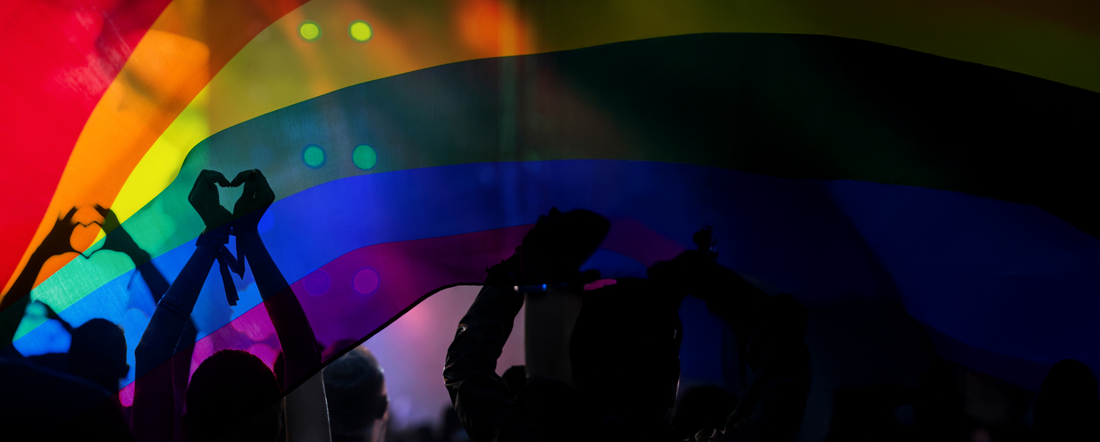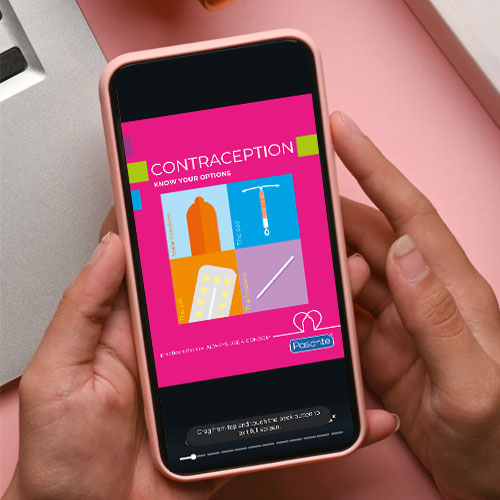
Coming Out: How To Embrace Your Authentic Self
Share
‘Coming out’ is often used to describe the moment when someone embraces their authentic self and shares their LGBTQ+ identity with others. That said, not everyone feels connected to the term ‘coming out’ - and that’s perfectly ok. You can use whatever word feels right for you.
Coming out LGBTQ+ can be an empowering experience - a chance to finally stop hiding parts of yourself and be seen for who you truly are. But it can also be difficult, especially if you’re unsure how others will react.
While you might ‘come out’ to one person, it can feel like you also have to ‘come out’ several times, to different people in various situations throughout your life. With this in mind, let’s explore how to embrace your authentic self when you ‘come out’ for the first time.
What does sexual orientation mean?
The term ‘Sexual orientation’ can mean something different to everyone. For some, it might mean someone who they are sexually and romantically attracted to, for others it might be someone they just want a romantic relationship with, as not everyone will feel sexually attracted to someone.
Here’s a list of some LGBTQ+ terms and their meanings. Coming out LGBTQ+ doesn’t always mean you fit into any one category or label. You might find you resonate with several of the categories or only resonate with just one. Don’t feel pressure to put yourself into any one box, as everyone is different.
Aromantic: Someone who experiences little or no romantic attraction.
Asexual: Someone who experiences little or no sexual attraction to others.
Bisexual: A person attracted to more than one gender.
Demisexual: Someone who may only feel sexually or romantically attracted to people when they have formed an emotional bond.
Gay: A person who is attracted to people of the same gender (often used by men, but some women and non-binary people also use the term).
Grey: Someone who experiences attraction only occasionally, rarely or under certain conditions.
Hetrosexual: Someone who is attracted to the same gender.
Lesbian: A woman who is attracted to other women.
Pansexual: Someone who is attracted to people regardless of gender
Questioning: Those that are still exploring their sexual orientation and/or gender identity.
Questioning your identity
It’s completely natural to question your LGBTQ+ identity, especially when it doesn’t feel like it fits the standard ‘norm’. Feeling uncertain about who you’re attracted to, or how you identify is part of growing up and learning to embrace your authentic self. Sometimes, it can feel like a race to figure it all out quickly, to label yourself and share it with the world, and once you do it’s permanent. But it’s ok to take your time to figure it out. You might feel certain about your identity one day, but later on, it changes. You might be attracted to the opposite sex now, or identify with one gender but later on, you come out as LGBTQ+ or are drawn in a different direction. The terms that fit you now may not resonate in the future and that’s ok too. Your identity is yours to explore, define and change if you want to - on your own timeline. There’s no pressure and no ‘wrong’ way to be yourself.
How to come out LGBTQ+
1: Start with you
Before you come out as LGBTQ+, come out to yourself. Give yourself permission to explore your identity and embrace your authentic self without judgement. You don’t have to have all the answers right now, and your identity may change, but do what feels right and natural for you right now. Journaling out your feelings can be a good place to start, reading material online, or speaking to others in the LGBTQ+ community about your experience can help you make sense of how you’re feeling. Learn to accept this part of yourself first, before you share it with the world.
2. Set boundaries
Before ‘coming out’ as LGTBQ+ - take a moment to check in with yourself. As yourself, ‘am I ready to share this part of myself? Or ‘do I feel pressured?’
Think about what you’re hoping for from the conversation. Are you seeking understanding? Acceptance? To be seen? Or just to get it off your chest?
It’s also important to think about what support you need from people after you have told them and what you are not willing to accept? Maybe you need space, reassurance, or someone to listen without judgement. Maybe there are certain reactions or questions you’re not comfortable with.
3. Choose who to tell first
When coming out as LGBTQ+, it’s important to start with someone you trust, whether it’s a close friend, a sibling or even an online support group. Telling just one person can feel like a huge weight has been lifted. Having just one person that embraces your authentic self can make this journey feel a little easier. Some people write letters or texts if face-to-face feels overwhelming right now. Choose the method that feels most right for you. You have every right to decide who you tell, how you tell them, and what kind of energy you allow into your space.
4. Expect a mix of reaction
When you ‘come out’ as LGBTQ+, people may respond in different ways. Some people will celebrate you. Others may need more time and a few people might even disappoint you altogether. It’s important to remember that their reaction is a reflection of them - their beliefs, their fears and their conditioning. It’s not a reflection of your worth. Focus on surrounding yourself with people who lift you up, who celebrate you, who are proud of this journey you are on and who make you feel safe, seen and valued. You deserve to be around those who celebrate you for exactly who you are
5. Prepare yourself with contraception
If you're thinking about becoming sexually active - it’s important to know what your options are when it comes to contraception and protecting your sexual health. Contraception isn’t just about preventing pregnancy, it’s also about protecting you from sexually transmitted infections and HIV. Research different methods that are available, such as condoms, oral dams, internal condoms, hormonal or non-hormonal contraception and decide what feels right for your body and your circumstances. If you're unsure where to start, speaking to a sexual health clinic can be a great first step.
To find out more about protecting your sexual health as an LGBTQ+ individual - click here…
Or to read our helpful guide to LGBTQ+ sex - click here…



